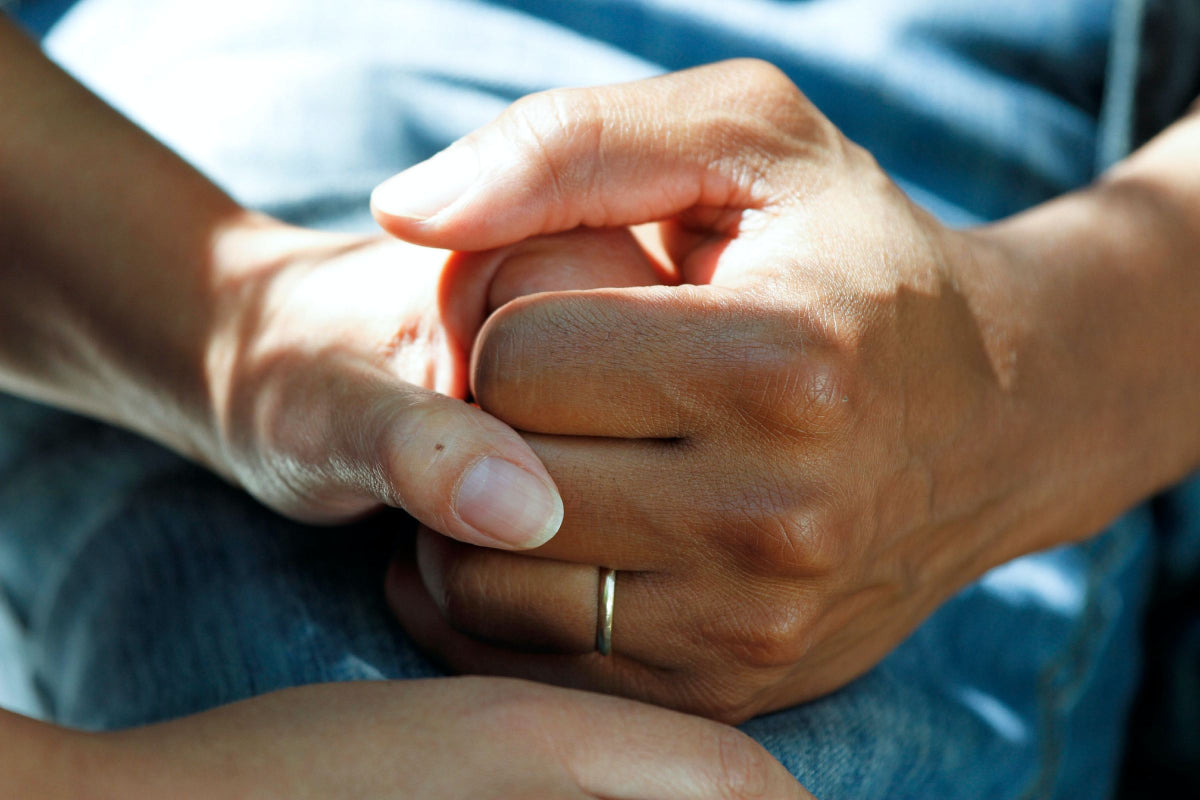
Your child has been diagnosed with food allergies. It’s a lot to take in. Suddenly everything you know about caring for and nourishing your family has been flipped on its head. You’re spending more time than you ever thought possible food shopping as you pause in front of every potential purchase to scan labels for allergy statements once… twice… three times, just to be sure.
You’re slowly realizing that food allergens are in more than just food. That moisturizer you’re about to put on your hands, scan the label there, too. The lip balm – yes, check that one. Also check those art supplies and that bag of treats you’re about to pick up for your dog.
Understandably, when someone is diagnosed with food allergies or a related disorder, the focus is on the diagnosed individual and the impact this will have on their lifestyle and their health. In the big picture, however, such a diagnosis will also impact caregivers and others in the household. Failure to recognize that (and to support those individuals) can add stress and overwhelm. Take a deep breath. We see you. We are you. We support you.
Reality Check
As noted above, a food allergy or related diagnosis will impact everyone in the household. Whether the individual impacted is your toddler or another adult in the family, it’s going to cause a shift in the way you shop for food and other items, the way you prepare meals, the way you clean, and the way you eat. It’s going to add new rounds of medical visits. It’s going to change the way vacation planning looks. It’s going to shake up your holiday traditions. It’s going to add a new thread to back to school preparations each year. It’s going to add considerations and accommodations to play dates and extracurricular activities.
One person in your family has food allergies, but your whole family is going to adapt to the changes it brings. And if you’re a caregiver, the weight of all this is going to fall heavy on your shoulders.
Don’t Downplay
Women in particular can feel obligated to downplay the toll caregiving may take. We don’t want to appear like we’re trying to make someone else’s health issues about us. We don’t want to look like we’re complaining or being negative. We accept the tasks of coordinating accommodations and meals and adaptations and we try to take it all in stride because it’s our ‘job’ to do these things.
Yes, and, while it’s right and normal that you’ve got a role to play in keeping your loved one safe and healthy, that doesn’t mean you won’t feel grief over the diagnosis. It doesn’t mean there isn’t an added layer of stressors and work loaded onto an already full plate. It doesn’t mean you won’t feel overwhelmed. It doesn’t mean you won’t feel tired and emotional. You will and it’s okay to say so.
Recognize It
Do you get to the end of the week feeling more exhausted than you think you should? You wonder why things seem so much harder now than they did before the diagnosis. You’re still doing the same things – shopping, cooking, keeping up with the family calendar, being aware of what’s happening in school, working, and all that other good stuff. Yet, doing those things as a caregiver to someone with food allergies looks a little different.
There aren’t very many “grab and go” meal options for families with dietary restrictions. This means more hands-on time in the kitchen tied to every meal. There is no quick run in and pick up a family favorite from the supermarket. Manufacturing processes change sometimes and therefore, labels must be read each and every time we make a purchase. Scanning labels may add seconds once you get it down, but it’s seconds on top of everything you buy which adds up quickly.
School trips, Scout outings, team sports, play dates, they all have an added set of questions and due diligence when you are coordinating for a food allergic individual than they did before. You’re exhausted physically and mentally because you are doing more - and not recognizing that compounds the issue.
Get Support
1 in 10 individuals in the US have food allergies. It may feel like you’re alone in this, but you’re not. There is someone else right now in your community juggling the same set of challenges. There’s someone else who might not have it all figured out, but they can commiserate. They share your excitement when you finally find the right non-wheat flour blend that makes your cupcakes just as scrumptious as you want them to be or when you find a body lotion that’s free of nut-oils and dairy.
There are online support groups on your social media platforms with people who are facing the same challenges you are. There are organizations that exist solely to offer support to families like yours – to advocate on your behalf, to educate others on the things you face. Find those people and those organizations.
There are also friends and family that want to be an ally. They may not live the day-to-day you are, but they see you and they want to help. Find them and lean on them. Create your own support system to help you as you support your loved one.



